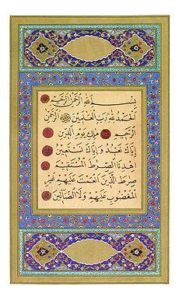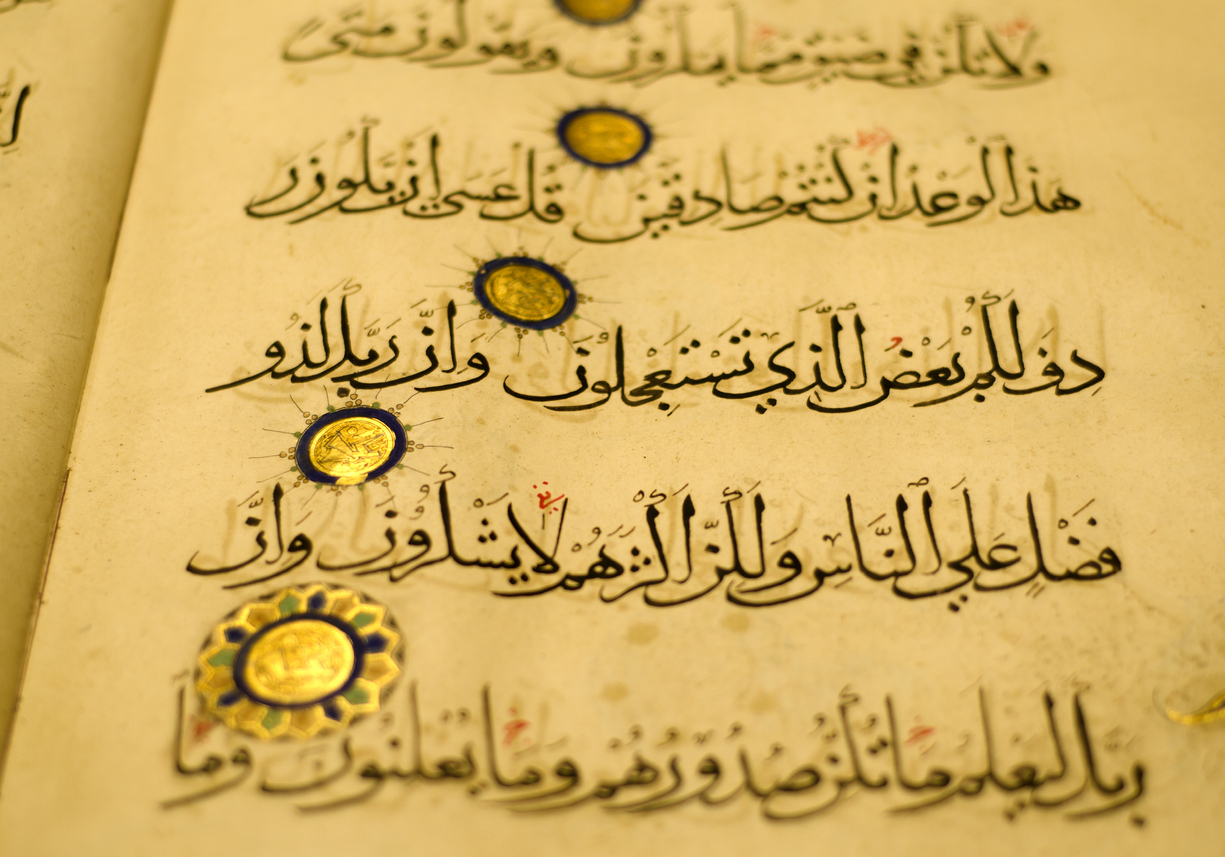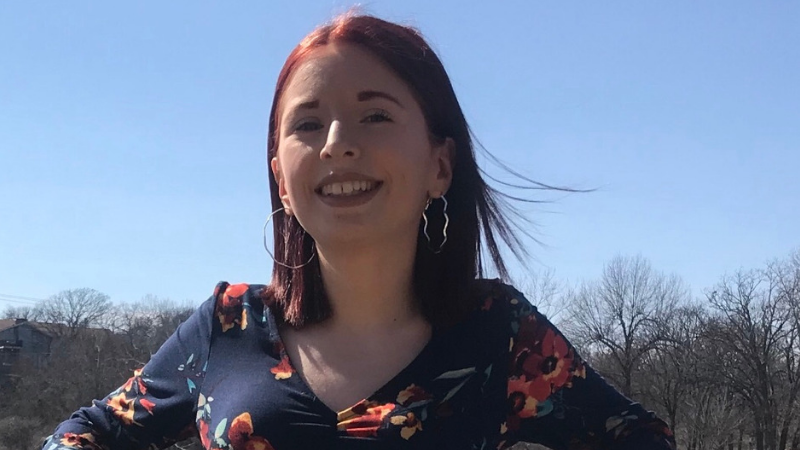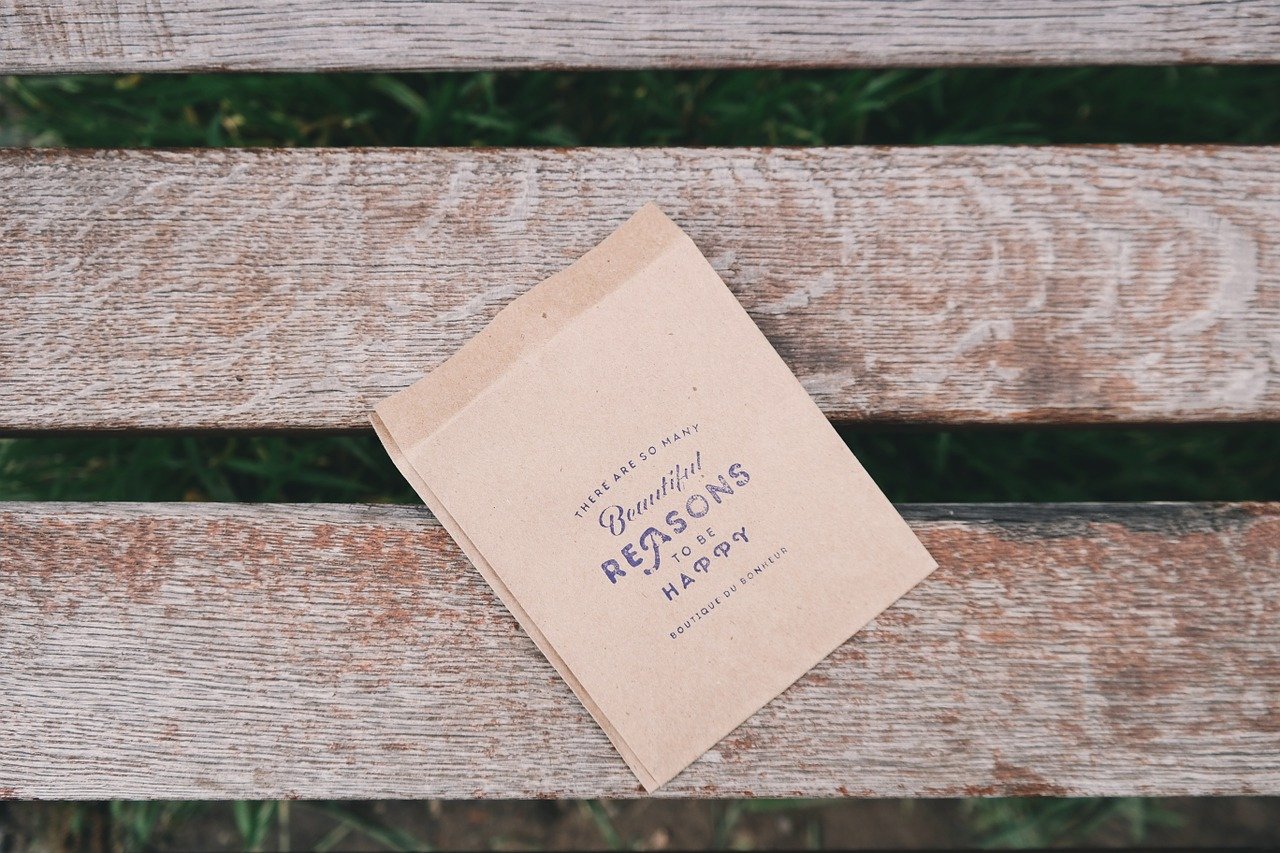
Pictured, the opening surah (chapter) of the Qur’an.
Al Fatiha – The Opener
In the name of God, the infinitely Compassionate and Merciful.
Praise be to God, Lord of all the worlds.
The Compassionate, the Merciful. Ruler on the Day of Reckoning.
You alone do we worship, and You alone do we ask for help.
Guide us on the straight path,
the path of those who have received Your grace;
not the path of those who have brought down wrath, nor of those who wander astray.
Amen.
The Qur’an. It’s been cherished, vilified, targeted as a message of violence and hate, but is also a comprehensive guide for billions throughout the world. Never has a book engendered such conflicting emotions and opinions. It has led Muslims to live a life of peace and order but has been interpreted by others as a call to terror and extremism. Is it worth the read, so compelling, that as some have conjectured, it must be the work of the devil’s trickery?
When I am asked how and why I became a Muslim, I tell a story of a sheltered Midwestern girl, growing up in a predominantly white, Christian society who was nevertheless always fascinated by ‘the other.’ Performing from a young age, I took an active part in many diverse Christian and Jewish worship services as a singer. Eventually making my way to New York City, the ‘mecca’ of performing arts, I was fascinated to meet so many others different from me.
I walked into a coffee shop on the Upper West side of Manhattan and met an Egyptian. He was welcoming, gentlemanly and shared his Islamic religion – about which I knew nothing. The message was startling. Another monotheistic religion, the same historical and biblical line of prophets from Abraham to Jesus? I was shocked and embarrassed by my ignorance but intrigued to learn more.
As much as I was impressed by the manners of the man and the message of Islam he shared, what caught my eye, my heart, was the Qur’an itself. I was a performance artist but possessed an ‘eye’ for visual art. I found my new friend reading his Qur’an one day. Often even simple volumes are bound beautifully or feature complex geometric patterns that adorn the cover or opening pages. But it was the writing, the calligraphic artistry of the Arabic text that drew me in. Obviously there was a great deal of love, care and reverence that this book was so beautifully preserved.
Many have claimed to be ‘experts,’ both Muslim and non, on all things Islamic and the Qur’an. They do little more than cherry-pick verses to suit an agenda. Those accustomed to the chronology of the Bible find Qur’an difficult to follow. Verses were revealed for specific situations either to inform, guide or even respond to detractors. The first verses beginning with ‘Read’ or recite, are found in the latter part of the Qur’an, chapter 96 (in Arabic surah) and only the first five lines at that. A second revelation appears in Surah 68 and only a few verses of that chapter as well. The reader will discover parts of prophet stories scattered throughout the Qur’an, not necessarily in order but in terms of the point needed for specific situations. Scholars of Quran have written entire interpretations focusing on how color, voice and drama set various verses apart and yet create a cohesive whole.
Millions of Muslims in every generation commit the Qur’an to memory. All Muslims must know some Arabic language. The five daily prayers are recited from the Qur’an. Memorization of all or even part is highly valued, an Interesting fact when confronting a society that prides itself on the fluency of only a single language!
Is it prose, poetry? Those who hear its recitation often call it singing. At the time of revelation, the height of esteem and even celebrity status in Arab society was afforded to the story tellers – those most gifted with eloquence. Muhammad, descended from a noble family reduced to hard times, was like most men of his generation: illiterate in both reading and writing. He was known as a kind, moderate and honest man with a gift for wisdom and justice in the settling of disputes, never for his linguistic skills. Yet the moment he began to recite the words of the Quran, its message entranced and captivated some, while others declared him surely possessed by spirits.
The Quran exists on multiple levels. It is lyrical and rhyming to even the uninitiated, non-Arab speaking ear. It is compact, expressing in few words profound thoughts. It is guidance for the believer. As much as we hear that science and religion cannot come to terms, the Qur’an is replete with scientific knowledge: one example is a descriptive and accurate passage of the development of the fetus in the womb. What may have seemed allegorical to those Arabs of long ago, now has been proven true by modern science and technology.
The reader is asked to stop, look and listen then most importantly reflect and think. Faith is not a mystery nor is God hidden in the Qur’an. The psychology of humanity found within its verses is what finally convinced me to commit. For others it has been science, nature, math, law, social justice and equality, and linguistics that drew them in.
So that’s my favorite book. It’s my guide, inspiration; my point of reference and criterion for making life decisions. It speaks to me anew each time and I reflect on the world with a more discerning eye. It challenges me to be a better person each and every day and has opened countless doors of curiosity and learning that I never before possessed. I took those first words to heart – read!













